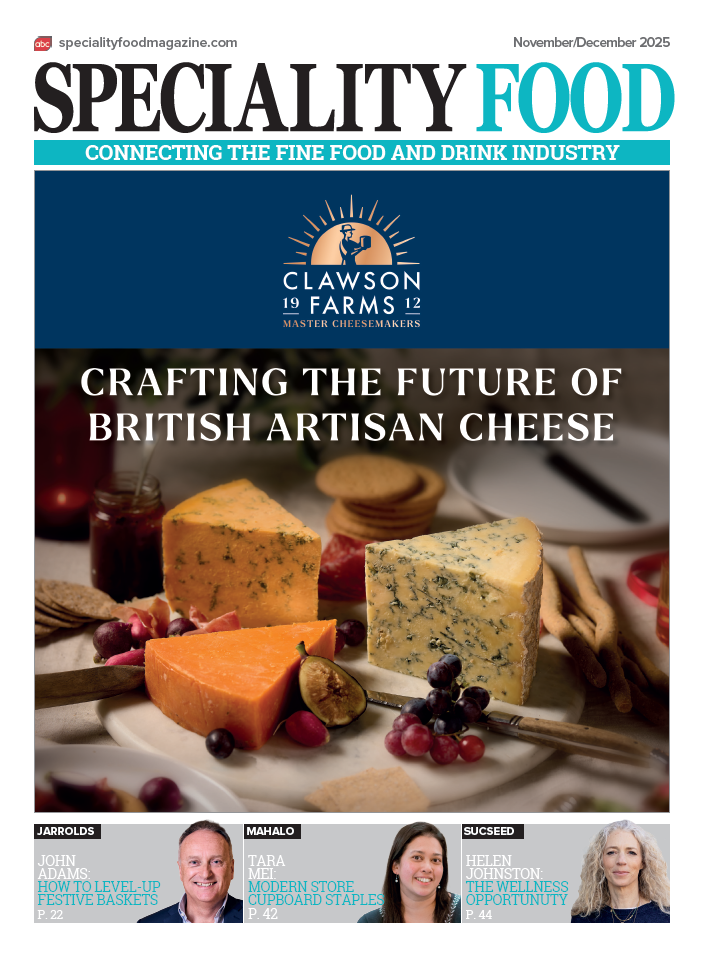New Generation Charcuterie

- How one cheese shop supported locals in lockdown
- Rory Mellis, IJ Mellis: “Local businesses have a chance to flourish”
- Why we should be proud of the cheese industry’s response to Covid
- The joy of cheese grading
- “Keeping the faith”
Juliet Harbutt asks, muntjac and juniper salami or dried alpaca, anyone?
Living in the Cotswolds I am never far from a farmers market, a friend with an allotment, a family-owned butcher and more recently, a pub serving excellent local food. This idyllic lifestyle, however, is blighted by the lack of an authentic cappuccino. If every café and beach bar in New Zealand can send their staff on a barista course, why can’t the ones in the Cotswolds? The other culinary essential I hankered after, having run my own deli-cafe, was good charcuterie. Then suddenly English charcuterie seemed to be everywhere – not just air-dried hams, but juicy salamis and rough cut terrines made with succulent, free-range, well-fed pigs.
Visitors to Canon & Canon in Borough Market can experience air-dried alpaca, cold-smoked Dorset mutton and venison bresaola [bresaola is traditionally air-dried, salted beef], while the guys at Trealy Farm – with their philosophy of “not sticking to tradition too much” – are using rare breed and free-range pigs, lamb, rabbit, goat, wild boar and beef.
Chipping Norton-based Ross & Ross, known for their fabulous catering and street food, makes chunky, flavoursome terrines (as does Emily Watkins of the Kingham Plough and Great British Menu fame), and my favourite summer starter: pork rillettes, made from free-range pork belly, cooked in its own fat until tender then shredded, seasoned, pounded with herbs, potted and sealed with a layer of fat. The Real Boar Company makes my current favourite salami – Wild Boar & Venison with Red Wine, using their Cotswold-reared wild boar and venison from Badminton Estate. Very posh.
Possibly the best but by no means only British air-dried ham – a tradition started in 1995 by Denhay Farm in Dorset who now make seriously delicious bacon – is from Forest Pig, whose piggies inhabit the Wyre Forest, a site of special scientific Interest, and are part of the woodland management programme approved by Natural England. This in turn imbues the meat with woodland flavours – yes it does – they are what they eat just as what cows eat influences their milk.
If Britain can create over 750 unique cheeses in the last 25 years from cow, goat, sheep and buffalo milk, imagine what innovative farmers and entrepreneurs can achieve when everything from pig to pheasant and muntjac to goose can be dried, smoked, aged or cured. Foodies are devouring this new charcuterie with an enthusiasm hitherto reserved for my favourite foods and cheeses, and for many of the same reasons. This is because curing or ageing meat, like cheesemaking, concentrates the flavours in the raw material using only time, salt and air. Unlike cheese, however, cured meats benefit from the judicious use of nuts, herbs, spices, and alcohol.
With the huge increase in farmers’ markets, food fairs and funky street food vendors offering as much flavour as they have flair, plus the impressive range of cured meats available from supermarkets, delis and farmshops, ignore or underestimate the significance of these great products at your peril.
They add flavour and pizazz to any meal, and from a retailer’s viewpoint they keep well, look good, offer a good margin, and a quick search of the internet or visit to your local farmers markets will yield up enough options to keep you and your customers happy for months to come.
more from Cheese Talk
-
“Don’t sway to populists”
25 August 2016 Cheese TalkWith consumer demands continually fluctuating and markets changing on a yearly basis, it’s almost impossible to predict what the new craze or sudden ‘loser’ will be. -
“Making a spectacle of yourself”
12 July 2016 Cheese TalkUntil a few weeks ago I was feeling rather smug about my moved to New Zealand, basking in a four month-long near-drought with autumn temperatures rarely falling below 20ºC -
“Cheese magic – it’s in our culture”
17 May 2016 Cheese TalkWe all know that cheese is magic… really. Some milk, some rennet, some starter culture, some salt and maybe sometimes some controlled mould, and hey presto you have thousands of different cheeses

